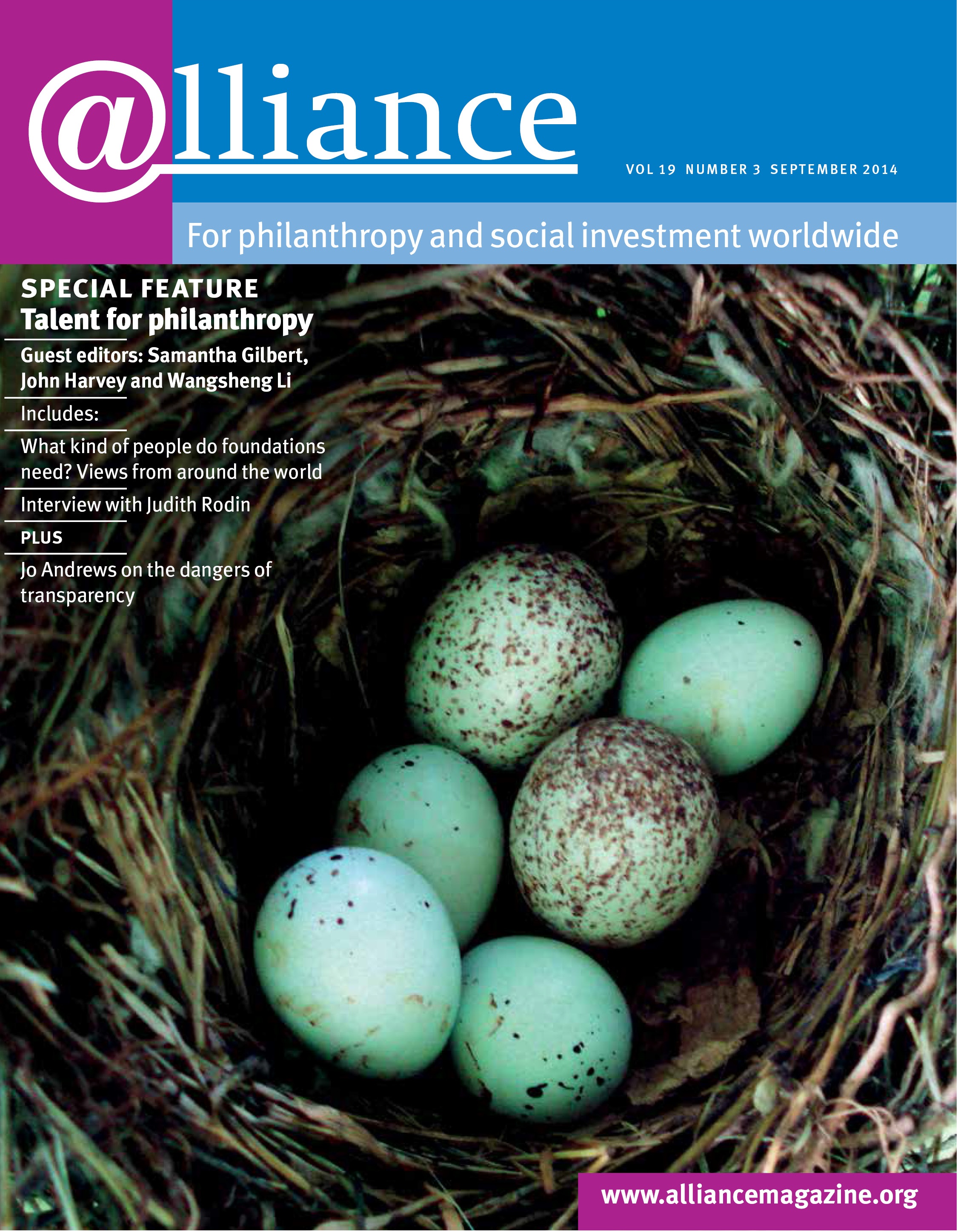The family office is a well-established niche sector in financial management in advanced economies, but outside Western Europe and the USA it is a rather novel concept that has yet to take root. In future, family offices are likely to play a key role in managing the philanthropic activities of high net worth individuals (HNWIs) in the Asia-Pacific region. But how professional are the staff in these family offices? An informal survey of family offices in Hong Kong aimed to find out.
The International Family Office Association estimates there are up to 3 million HNWIs[1] in the region. Unfortunately, there are no reliable figures for the number of family offices. Asians tend to be secretive about their family affairs and often embed their family offices in another corporation or trust management or investment firm or inside the company they control, making it difficult to classify them as such.
While a family office’s primary function is to manage the family’s wealth, one subordinate role is to provide a supportive environment for the family’s philanthropic activities. To find out how philanthropy is carried out in the family office setting and how family offices cope with the challenging task of staffing for charitable activities, the author conducted an informal survey with over a dozen heads of family offices and philanthropy officers within family offices in Hong Kong.
While the family office is often staffed by professionals with relevant expertise, that expertise does not always extend to philanthropy; family principals may turn to trusted advisers with no experience or knowledge of charitable giving. And sometimes charitable giving is part of the family office CEO’s portfolio.
It is not uncommon for one person to comprise the entire philanthropy team – the executive director, programme-cum-communication officer and liaison with the family principals rolled into one. This individual may be a designated family member, a senior adviser to the family, a senior staff member with a portfolio of mixed responsibilities, or a professional grantmaker.
Take the S family. JS (a second-generation family member) was given the responsibility of minding the family’s charitable giving with hardly any participation by other family members. While recognizing the benefits of a professionally run operation, she has chosen to stick to an informal approach with a very hands-on involvement. One reason, she says, is that it has been challenging to find someone with the ‘right fit’. Further probing revealed that JS wasn’t only talking about professional skills but also about values, character and maturity. To be effective and stay abreast of the latest developments, JS attends various forums, roundtables and informal gatherings.
SPM is a multi-family office that caters to five branches of the C family. Each branch has established its own philanthropic operation with a different focus. Although they all have a ‘professional team’ in place, a harder look revealed that only one of the five teams is made up of professional grantmakers with an active governing body. Again, this was partly because of the lack of a sufficient supply of professional grantmakers. But it is also apparent that family principals need to be better educated about the value of engaging professional grantmakers.
The family office can be an efficient mechanism for the family’s philanthropic activities. One reason offered by donors for not having a formal structure for charitable giving is that they enjoy the kind of flexibility that a structure-less charity ‘programme’ affords, allowing them to dispense with a formal board or with adherence to strict self-discipline. Rather than engaging professional grantmakers, family offices resort to trusted advisers to support the donor’s philanthropic activities, even though the advisers may not have a great understanding of charitable giving or of grantmaking.
For many family-initiated philanthropies, bringing in professional grantmakers is perceived as a luxury rather than a necessity. The professional philanthropy officer is not necessarily in an enviable position, as charitable giving can be very personal in nature and family dynamics can get in the way of an otherwise very rewarding experience for the family members and the professional staffers alike.
Donor education and development of a professional pipeline may be key to a more mature philanthropy sector for the region.
1 The Family Offices Group Association estimates that Hong Kong alone is home to over 90,000 high net worth individuals and 1,300 ultra high net worth individuals.
Wangsheng Li is president of ZeShan Foundation (Hong Kong) and a Synergos senior fellow. Email wangshengli@zeshanfoundation.org



Comments (0)